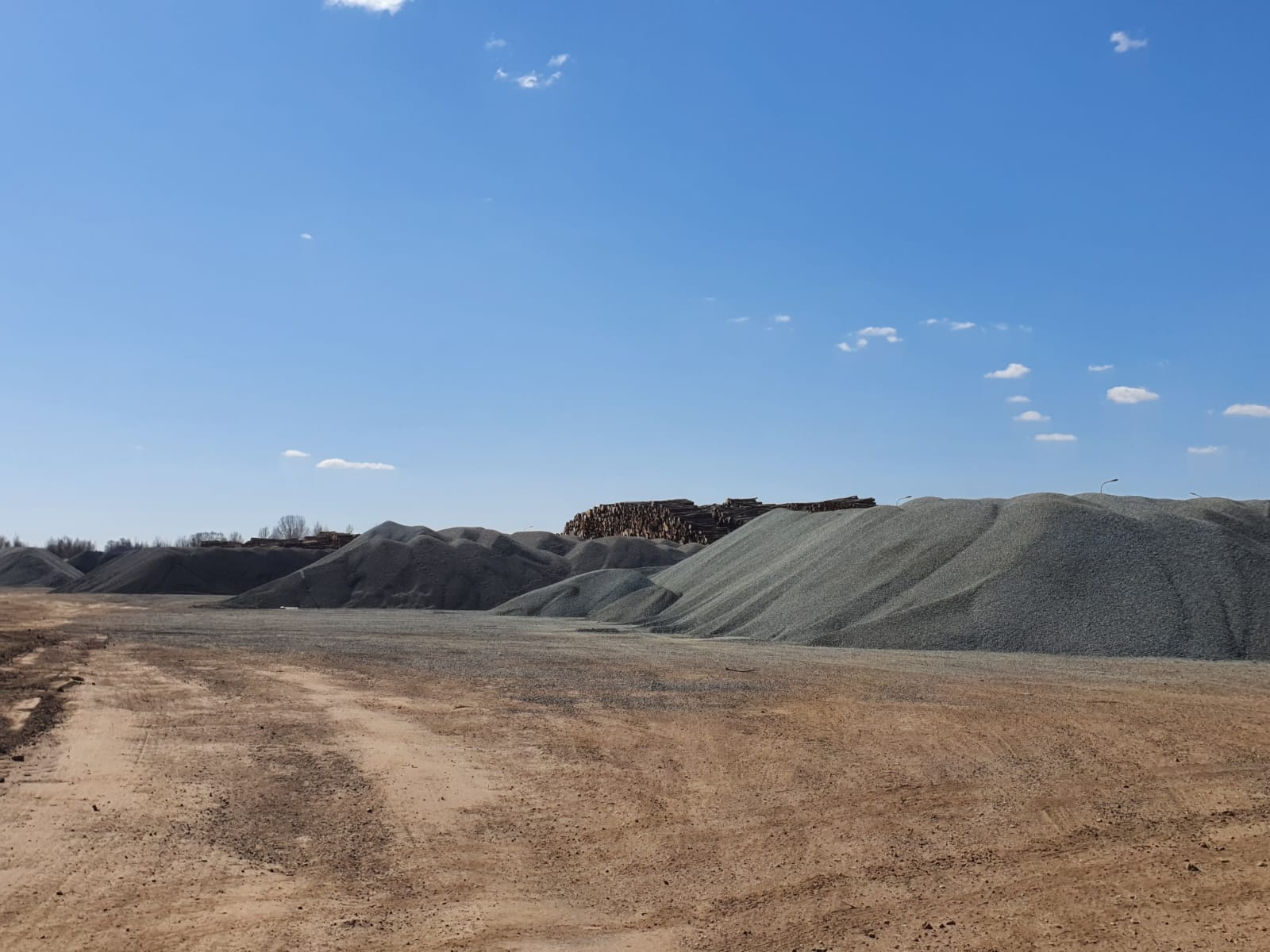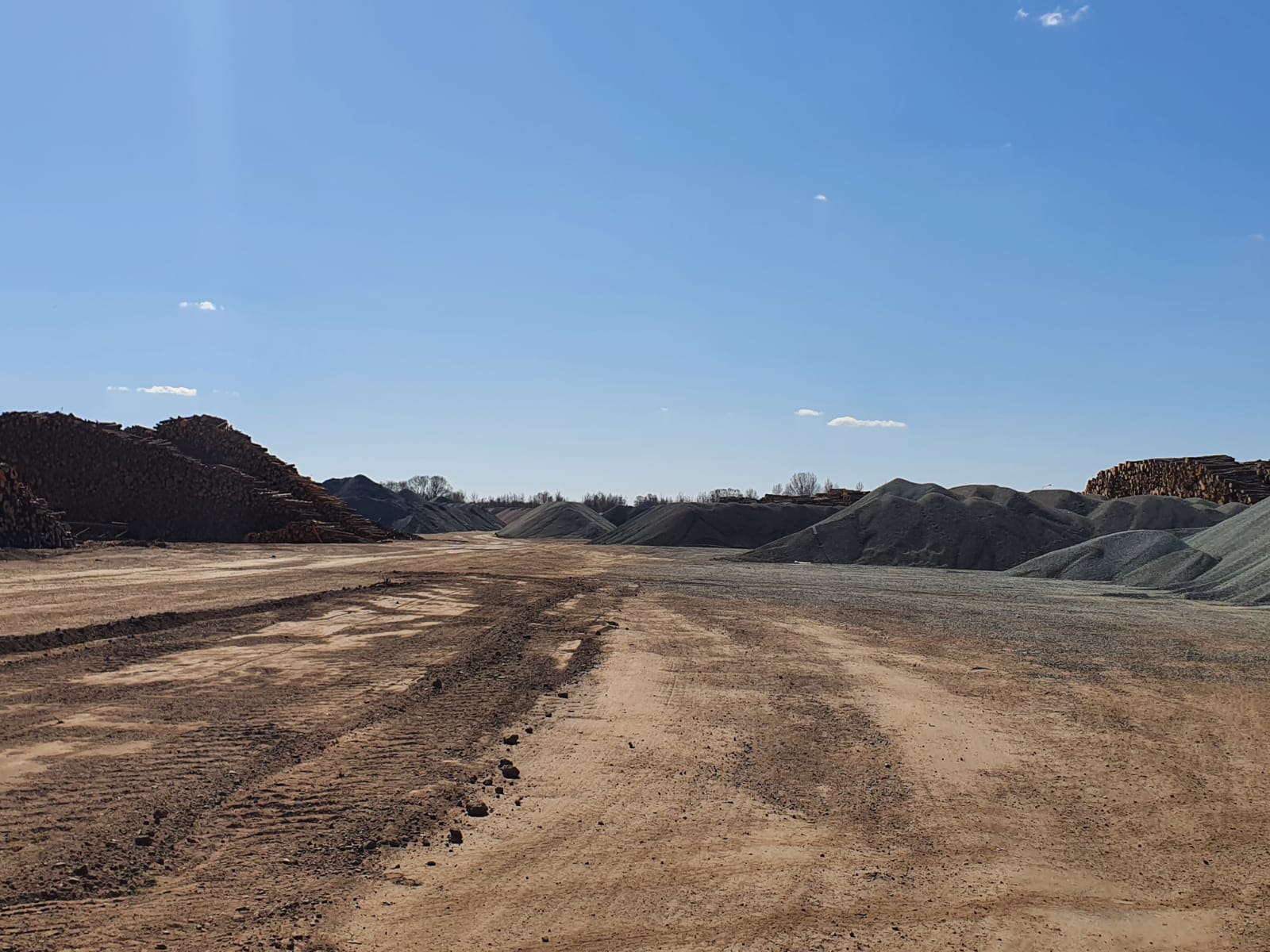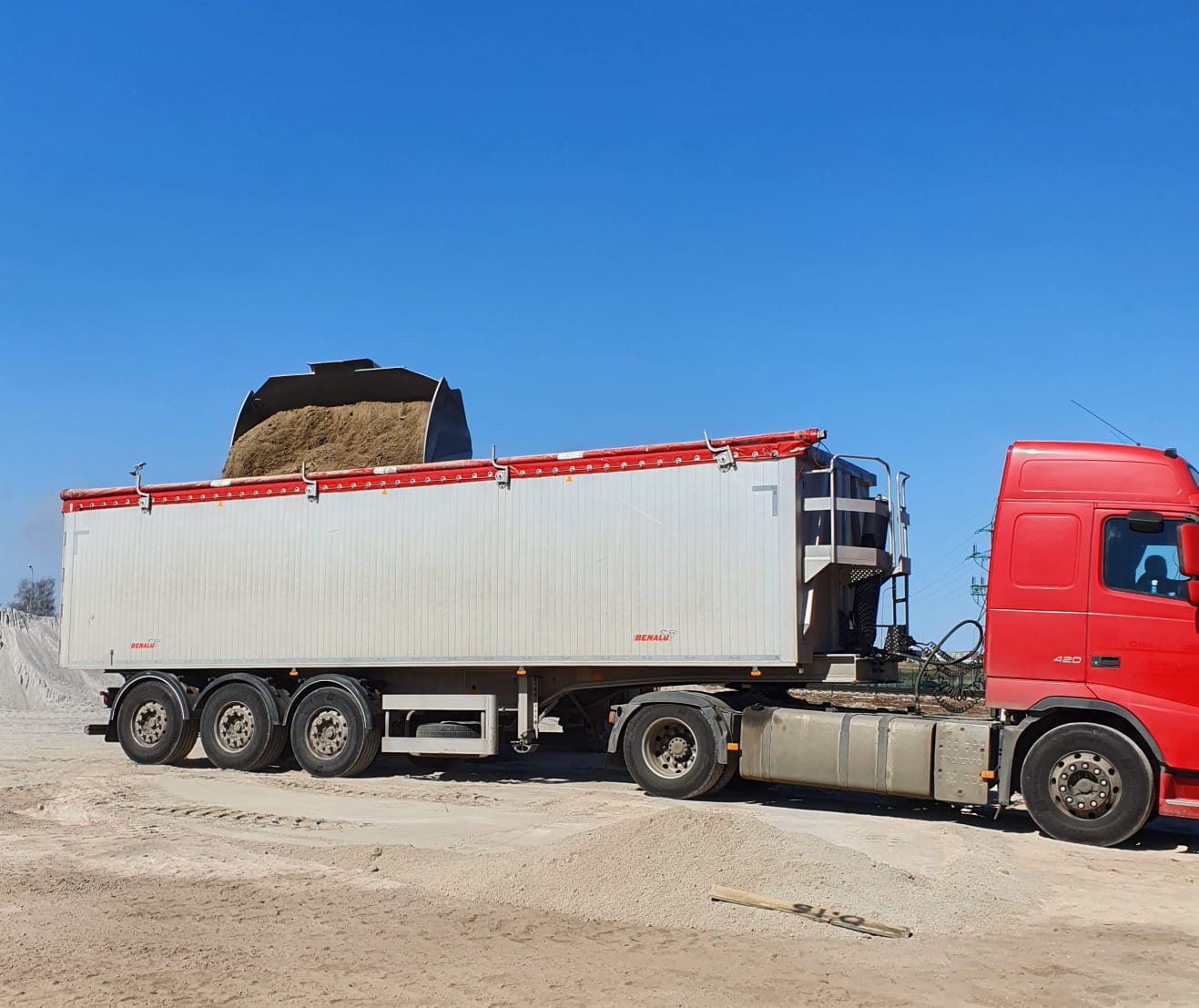Domestic and international bulk cargo transportation
Bulk cargo is a process that requires much attention to the physical characteristics of the bulk cargo and the preparation of the road haulage business.
Transportation of bulk cargo is organized according to the specifics of cargo, for each bulk cargo material, trucks are prepared so that the bulk cargo is delivered without changing the physical properties:
- Grain size / granularity, which characterizes distribution by the size of the amount of particles (pieces) of bulk and tipping cargo.
- Flowability – is the ability of bulk and tipping loads to move under the influence of gravity or external dynamic effects.
- Bulk density.
- Dusting – the ability of fine particles of a substance to form stable mixtures with air and to move with air currents over a considerable distance from the location of the load. Cargo dusting occurs, for example, when handling fertilizers, cement, flour, grain and other cargo. Dust has an increased ability to absorb gases, vapors and radioactive substances from the environment. This is especially harmful if there are toxic substances in the air and there is increased radiation. In order to prevent cargo dusting, it is necessary to improve the packaging and packaging, to create specialized loading and unloading equipment, to develop transshipment technology.
- Abrasion (abrasion ability) – describes the property of bulk cargo to promote the wear of the surface of transport equipment in contact with it in motion (gutters, conveyor belts, etc.). The abrasiveness depends on the hardness of the load particles, which is determined by the Mohs scale.
- Bulk cargo has sharp particle edges. For example, impurity-free coal has a particularly low wear capacity, but pieces of coal falling from a height onto a rubberized conveyor belt can damage it with its sharp edges. In this case, the rapid wear of the belt does not occur due to the abrasion ability of the coal, but due to its sharpness.
- Stickiness is the property of bulk cargo to adhere to the boundary surface. Wet loads usually become sticky and need to be lowered to transport them. However, dry cargo also has this property. For example, sulfur and talc stick to steel, clay to wood, and so on.
- The absorption of moisture from the ambient air depends on the characteristics of the bulk cargo and the ambient conditions. Hygroscopicity can be explained in different ways. For example, calcium carbide and quicklime absorb moisture due to their chemical activity. The hygroscopicity of salt and sugar can be explained by their strong water solubility. Cotton, wool and grain absorb moisture due to the condensation of water vapor on large internal cargo surfaces. All nitrogen and potassium fertilizers, superphosphate, nitrate and dry wood chips are hygroscopic. To neutralize moisture absorption, the load must be isolated from the environment.
- With standards, technical regulations and other normative materials, the moisture content of various loads is installed, at which the substance is able to maintain its qualitative characteristics. Deviations from the moisture requirements of the cargo cause damage to the product or loss of quality. During transport operations, the high humidity of some loads contributes to very negative properties (compaction, freezing, vaulting, etc.), as well as causing the load to stick to the internal surfaces of containers and vehicles and to the tools of loading and unloading equipment.
Bulk cargo is divided according to the size of the bulk density:
- light (ρ <600 kg / m3 peat, wood chips, etc.),
- medium (ρ = 600 -1100 kg / m3 – grains, slag, coal, etc.),
- heavy (ρ = 1100 – 2000 kg / m3 – sand, gravel, crushed stone, etc.)
- extremely heavy (ρ> 2000 kg / m3 – iron ores, concentrates, etc.).
In cooperation with HanseGrand, high-quality road construction material was transferred from Germany to Latvia.


A specialized truck with a Walking floor or sliding floors was organized for unloading bulk cargo. Such a truck carries not only standard cargo but also bulk cargo. This type of truck is well suited for standard palletised loads or any loads that can be loaded from the rear.
Bulk cargo transportation was organized based on rules and experience. Quality road construction material starts with a thorough mixture of bulk binders. We took care not only of loading and unloading bulk cargo, but also of handling the road construction material. This is achieved by thorough mixing and a big thank you to the tractor driver for observing the proportions of the given materials from the manufacturer Hansegrand when mixing the road construction material.






